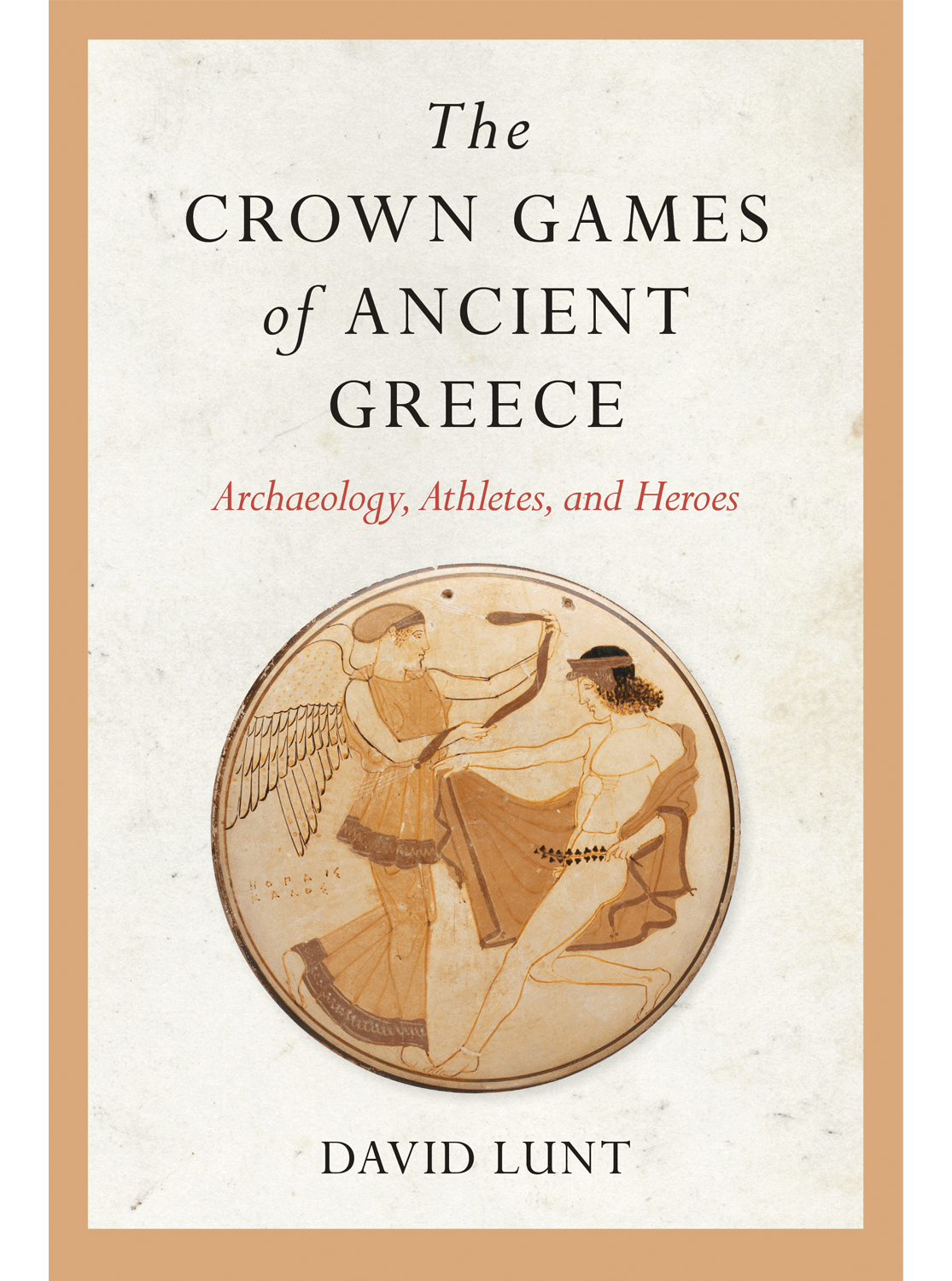The Journal of Sport History has published an insightful review of David Lunt’s The Crown Games of Ancient Greece: Archaeology, Athletes, and Heroes.
“David Lunt’s The Crown Games of Ancient Greece is a strong survey of the four Panhellenic Games, with separate chapters on the Olympics, Pythian Games, Isthmian Games, and Nemean Games, alongside two concluding chapters on athletic heroes and future directions for research. … By combining a sound survey of recent archaeology and a thorough understanding of the literary and documentary sources, Lunt’s book achieves its goal, to show how the Panhellenic circuit, not just the Olympic Games, are signal aspects of ancient Greek sport specifically, and ancient Greek culture in general.”
—Peter J. Miller, Journal of Sport History, Fall 2022
The Crown Games were the apex of competition in ancient Greece. Along with prestigious athletic contests in honor of Zeus at Olympia, they comprised the Pythian Games for Apollo at Delphi, the Isthmian Games for Poseidon, and the Nemean Games, sacred to Zeus. For over nine hundred years, the Greeks celebrated these athletic and religious festivals, a rare point of cultural unity amid the fierce regional independence of the numerous Greek city-states and kingdoms.
The Crown Games of Ancient Greece examines these festivals in the context of the ancient Greek world, a vast and sprawling cultural region that stretched from modern Spain to the Black Sea and North Africa. Illuminating the unique history and features of the celebrations, David Lunt delves into the development of the contest sites as sanctuaries and the Panhellenic competitions that gave them their distinctive character. While literary sources have long been the mainstay for understanding the evolution of the Crown Games and ancient Greek athletics, archaeological excavations have significantly augmented contemporary understandings of the events. Drawing on this research, Lunt brings deeper context to these gatherings, which were not only athletics competitions but also occasions for musical contests, dramatic performances, religious ceremonies, and diplomatic summits—as well as raucous partying. Taken as a circuit, the Crown Games offer a more nuanced view of ancient Greek culture than do the well-known Olympian Games on their own. With this comprehensive examination of the Crown Games, Lunt provides a new perspective on how the ancient Greeks competed and collaborated both as individuals and as city-states.
David Lunt is associate professor of history at Southern Utah University, where he teaches ancient history and conducts research on the role of sports in society. His scholarship on ancient athletics has appeared in numerous publications, including the Journal of Olympic Studies, the Journal of Sport History, and The Bloomsbury Companion to the Philosophy of Sport.

